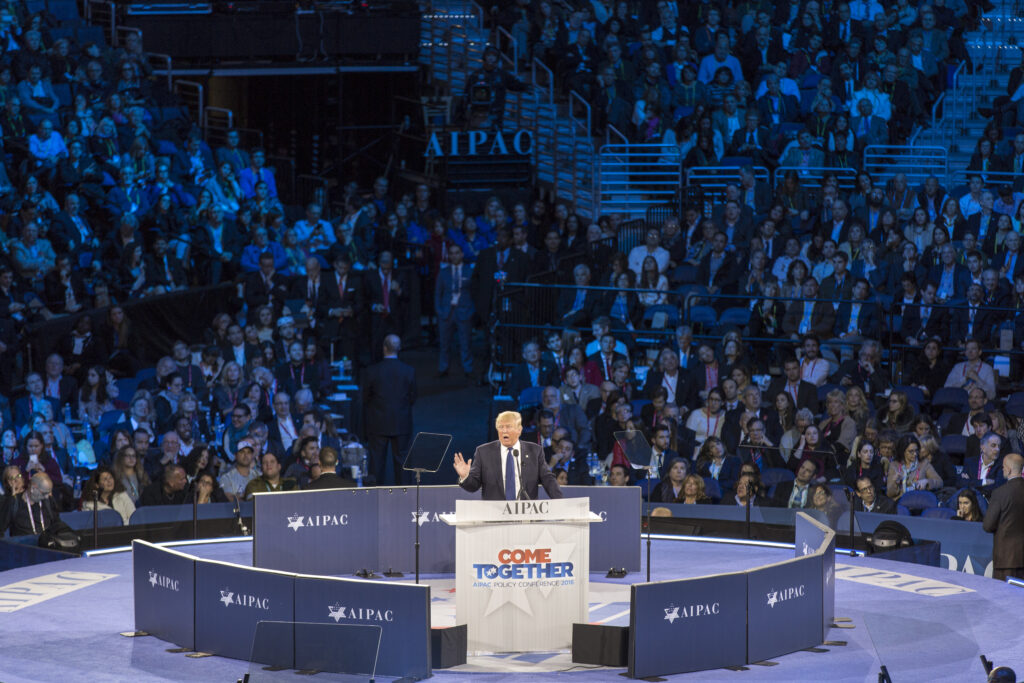No, AIPAC (the American Israel Public Affairs Committee) does not fall under 22 U.S.C. § 611. This is because AIPAC is an American organization which is founded by Americans, funded by Americans, and conducts its activity within in the United States without influence from a foreign government.
While you can read the full text of 22 U.S.C. § 611 on Cornell Law’s website, we will discuss the relevant parts of it to the AIPAC conversation in this article.
The Foreign Agents Registration Act (FARA), as outlined in 22 U.S. Code § 611, requires registration for entities that qualify as “agents of a foreign principal” engaging in certain activities on behalf of foreign interests. AIPAC is not required to register under FARA because AIPAC does not meet the statutory definition of such an agent. Here’s a breakdown, directly referencing the law to demonstrate why claims that AIPAC should register are off base—typically rooted in misunderstanding or misapplication of the law rather than evidence of foreign control.
1. AIPAC Is Not a “Foreign Principal” Itself by Any Means Whatsoever
Under subsection (b), a “foreign principal” includes:
- (b)(1): A government of a foreign country (e.g., the government of Israel) or a foreign political party.
- (b)(2): A person outside the United States, unless it is established that such person is not an individual and is “organized under or created by the laws of the United States or of any State” with its “principal place of business within the United States.”
- (b)(3): An organization “organized under the laws of or having its principal place of business in a foreign country.”
AIPAC falls squarely under the exception in (b)(2): AIPAC is a U.S.-based nonprofit corporation organized under U.S. laws (specifically, as a 501(c)(4) organization), with its headquarters and principal operations in Washington, D.C. It was founded in the U.S. by American citizens in 1963 as a domestic lobbying group representing pro-Israel Americans, not as an extension of a foreign entity. This means AIPAC itself cannot be classified as a foreign principal, which is a prerequisite for triggering agent registration requirements.
2. AIPAC Does Not Qualify as an “Agent of a Foreign Principal”
Subsection (c) defines an “agent of a foreign principal” as:
- (c)(1): Any “person” (which per (a) includes organizations like AIPAC) who acts “at the order, request, or under the direction or control” of a foreign principal (or someone substantially supervised/controlled/financed by one), and who engages in activities like:
- (i): Political activities (defined in (o) as influencing U.S. policy or public opinion regarding foreign relations).
- (ii): Acting as public relations counsel (per (g)), publicity agent (per (h)), information-service employee (per (i)), or political consultant (per (p)).
- (iii): Handling money or contributions for the foreign principal.
- (iv): Representing the foreign principal before U.S. government agencies/officials.
- (c)(2): Anyone who holds themselves out as such an agent.
While AIPAC does engage in “political activities” under (o)—such as lobbying Congress on U.S.-Israel policy and influencing public opinion—it does not do so “at the order, request, or under the direction or control” of a foreign principal like the Israeli government. AIPAC is funded primarily by private U.S. donors (American citizens and residents), operates independently, and sets its own agenda based on the views of its American membership. There is zero evidence of direct or indirect supervision, control, financing, or subsidization “in whole or in major part” by Israel, which is required to trigger the agent definition.
Courts and the DOJ have consistently rejected attempts to force AIPAC’s registration under FARA, finding no foreign control exists. For instance, AIPAC is registered as a domestic lobby under the Lobbying Disclosure Act (LDA), not FARA, because its activities are on behalf of U.S. supporters of Israel, not as a proxy for the Israeli state.
This distinction is key: FARA targets agents controlled by foreign entities, not domestic groups advocating for policies aligned with foreign interests.
3. Exemptions and Irrelevance of Other Provisions
Subsection (d) provides an exemption for certain U.S.-based news/press services that are majority-owned by U.S. citizens and not controlled by foreign principals. This doesn’t apply to AIPAC, as it’s a lobbying group, not a media entity—but it underscores FARA’s focus on excluding truly domestic operations free from foreign direction.
Other definitions, like (e) for “government of a foreign country” or (f) for “foreign political party,” reinforce that Israel qualifies as a potential foreign principal, but without the control link in (c), AIPAC isn’t an agent.
Claims that AIPAC should register often ignore the “direction or control” requirement and conflate advocacy for pro-Israel policies with foreign agency. Such arguments have been raised (and dismissed) multiple times, including in legal challenges, because they lack proof of the necessary foreign ties.
In summary, AIPAC operates as an independent U.S. entity under subsections (b) and (c), without the foreign control or direction that FARA mandates for registration. Accusations otherwise stem from speculation and, increasingly, abject anti-semitism, not the law’s text or factual evidence.








